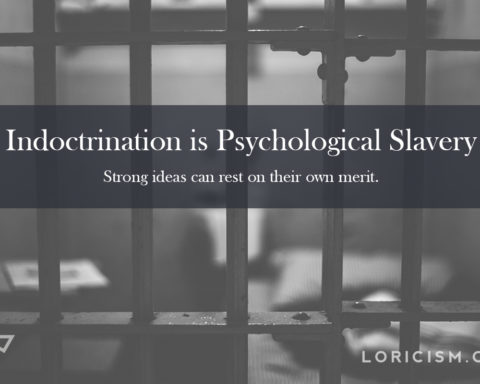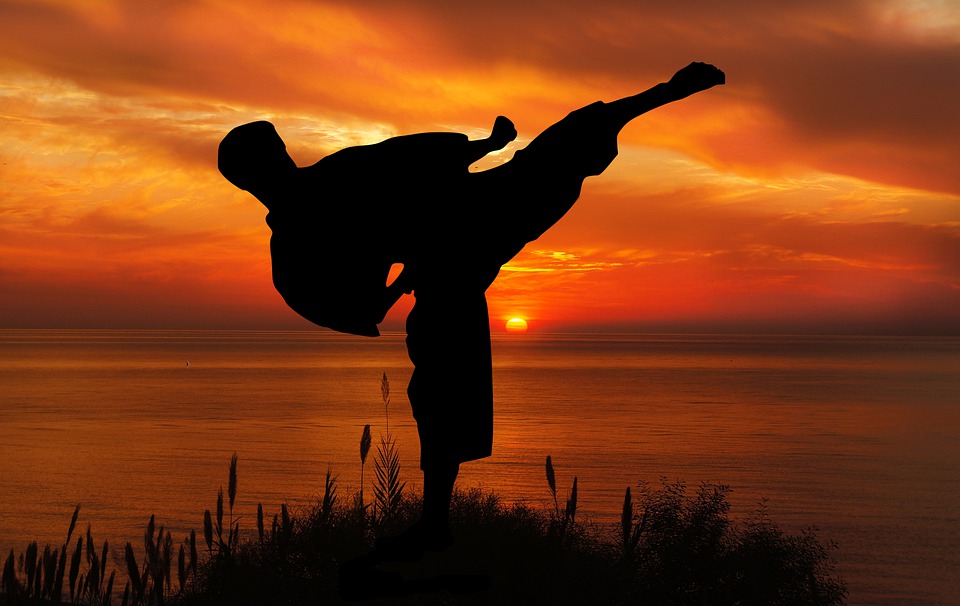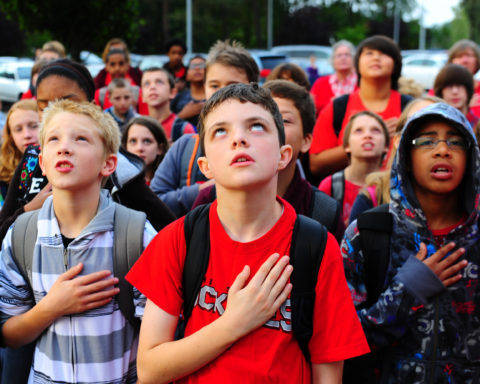There are lots of atrocities happening in this world, and I’m a huge proponent of awareness of these things. Living in a psychological bubble can create a false sense of security. It can make you oblivious to certain realities. But the other day something changed my perspective on this, and that is what I want to talk about.
“Evil prevails when good men do nothing.” — Edmund Burke
I once wrote a short Facebook note called “Your Life is Not That Bad.” The purpose of the note was to point out some of the awful things that are happening in the world to remind people that their lives are probably not half as bad as they think. It was a cautionary tale, an intellectual prodding, to warn against the dangers of existing from inside the safety of a psychological bubble. A warning against complacency, against falling into a false sense of security.
Awareness of Reality is a Good Thing
I’ve always been partial to knowing what’s going on in the world, because I believe it helps foster a sense of reality, to keep one grounded. I blame it on the self-defense mindset cultivated through years of martial arts. If you know what’s really out there, you know what to look for. You can avoid it. It’s not about cultivating fear in someone, it’s about cultivating a sense of respect. Respect for reality. Not bullshitting yourself. Many martial arts instructors take this stance, because for them, it’s a matter of delivering information that might save their student/client’s life. They have a responsibility to provide realistic training, and part of that involves telling people the straight shit. No BS. Mark Hatmaker has a whole section on his website with real stories about what has happened to people as a way of awakening people from the lull of the false sense of security. It’s called Predator Profiles, and I recommend reading it.
Here’s a video talking about unrealistic expectations.
This is why I’ve always advocated being aware of things in the world. There are actual dangers of living in a psychological bubble. For example, not everyone is familiar with human trafficking, yet it is a huge problem. There are more slaves in the world today than at any other time in history. Most of these are girls and boys being trafficked and sold into forced prostitution. This information is incredible. But here’s the rub: when you tell people that this is happening in their own towns, they don’t believe it. No way could that be real.
But it is.
Ignorance Doesn’t Help Solve Problems
This is the danger of being in a psychological bubble. It allows things like this to happen right under our noses. If you don’t know it’s even happening, there’s no reason to seek out a way to stop it.
And there are lots of things we are completely unaware of. Female genital mutilation is happening right now in the UK. Most people think it’s only going on in Africa and the Middle East. So it’s easier to forget about. The prevalence of child pornography is higher than people believe.
You may think of child pornography as something that could never hit close to home, or some uncommon perversion. Now a new study is shedding light on the prevalence of child pornography in the United States. The findings are unsettling.
In fact, I would argue that this is the case for everything, for the very reasons I outlined before. If things don’t happen right in front of our eyes, it’s out of mind. Things we think are only going on far away don’t enter our thoughts. I can’t count how many times I’ve heard, “Why should we help them if we can’t even help ourselves?” That’s an easy way to justify not having to help other people. “Why give aid to other countries when we have people here we can help?” Yet when it comes time to help those people at home, the saying just switches to something else to avoid it again. “Why should my taxes pay for them to sit on their asses and do nothing?” Repeat ad infinitum. This is proactive ignoring, though. What I’m talking about is purely not knowing what’s going on with regards to a certain situation.
But how do we overcome this psychological bubble situation? The most common answer: awareness.
People are fond of generating awareness of their favorite cause. The basic premise is that if you show people what’s happening, then maybe we can change it. It goes back to what I said about not knowing something is happening. If you don’t know something is going on, you won’t try to fix it. So, the logic goes, by highlighting something, we are now able to take action.
Seems legit.
Is Awareness Enough?
But there have been many criticisms about awareness. Some call it armchair activism. The mindset remains as before, only this time we share a link or a video and call it a day. The main criticism of armchair activism is that we are still passing the buck on having to do something. Only this time, instead of coming up with some justification on not helping, we believe we are actually helping, and therefore we are able to go on with a clear conscience. You may remember the Kony 2012 campaign that went viral. But what did it actually do, besides enabling further complacency?
Many issues pop up that actually have a way of helping. They tend to create a much-needed dialogue about a topic that might not be given much thought. The death of Robin Williams comes to mind. It sparked a discussion, and now more people are talking about depression and addiction. We are adding new perspectives into the mix of our paradigms, which is the catalyst for progress.
So as you can see, I’m a huge proponent of this type of thing. But an incident a few years ago changed my perspective on this, and that is what I want to talk about.
A Closer Look at Graphic Imagery
It was a few days after James Foley was beheaded by ISIS. The terrorists posted the video of his murder on the internet as an intimidation tactic to get US forces to stop bombing ISIS in Iraq. I was pleased to see a lot of links in my Facebook feed that went to positive things in remembrance of this man. But, as with any atrocity, I did see a few links to the actual video that ISIS posted.
My fiancee asked why people would post that. Why do people watch these things? People who watch these things must be sick or demented (studies have been conducted on why people watch these things). At the very least disrespectful. The truth is, there are a number of reasons people watch grisly videos.
There were those for whom the suffering on display was a source of stimulation, for whom shock and horror amounted to a form of pleasure. There were viewers who expressed vulnerability, sadness or empathy. There were viewers who said they were watching to prepare themselves for something — a deployment, a difficult job — and thought they could usefully desensitize themselves. And finally, there were viewers who seemed to see what they were doing as necessary, as a courageous or somehow countercultural act — against the media, against censorship — or in the service of witnessing some sort of truth.
After thinking about it, I replied that while some people might enjoy watching that sort of thing, many people I know watch it to remain objective. It is a cold, stark reminder of what type of person we are dealing with. My first taste of this was in 2004. I was coming home from Afghanistan. I remember walking into the internet cafe and seeing a bunch of people crowded around a computer. “What’s this?” I asked, seeing a young man clad in orange surrounded by masked insurgents. It looked like a propaganda video. Then they beheaded him. It was shocking, sickening. They accomplished their goal, which was shock and awe.
But at that moment I realized exactly what type of people we were dealing with. It may seem distant to someone back home, but we were much closer. Watching the video didn’t serve some sick and twisted need for gore. It awakened us to the reality of our situation. Of others’ situations. It enabled us to destroy our psychological bubbles. Sometimes workplace safety videos use graphic imagery as a wake-up call. To drive a point home.
Graphic Imagery Can Be a Powerful Motivator
People post graphic imagery from all sorts of atrocities as a way to raise awareness to what’s going on. I see pictures of Palestinian victims all the time. We all remember pictures of 9/11. Pictures of women who were disfigured by acid. Starving children. We use graphic imagery to generate a visceral response. The Boston bombings. Oklahoma City. The holocaust.
It reminds us of evil, lest we forget and allow it to happen again, right under our noses.
After I explained this, she said she wanted to watch the video. She said maybe it would help her understand something new.
I gave her several chances to get out of it. I told her it would fuck up her day, at least, and that she would never be the same. She would never forget something like this. I know. I have seen beheading videos. Amputations for stealing. I saw the Saddam hanging. Gaddafi. The worst I saw were stonings. I had to know. What kind of people do such things?
It did ruin her day. She cried and asked the same thing: what kind of people do shit like this? Why?
But she also said that she would prefer to never have to see anything like that again. She said she would prefer to remain in a psychological bubble. Because having to feel such strong emotions and such pain on behalf of someone like James Foley is a lot to bear, and now knowing that information, having seen it, what did it accomplish? What can she do about it? What can she actually do to change the situation? I didn’t have an answer to that. She then explained that if there is nothing she can do, she would rather not have to go through the pain and the sadness and the nausea.
She would rather not know.
And I totally understand where she’s coming from. I tell people all the time that worry doesn’t change the outcome. We shouldn’t worry or force ourselves to experience anxiety over things we can’t control or change.
You Still Need to Care For Your Own Mental Sanity
If I can understand the concept of getting rid of worry, I can understand not wanting to take up an emotional burden over something we can’t change or help. I’m also always telling people to get rid of anything that doesn’t suit them positively, that doesn’t help them become better people. To get rid of emotional vampires. To cut out undue stress. To simplify.
Now I realize that sometimes, this means maintaining a little bit of a bubble over the things we can’t do anything about. So until we can figure out ways to actually affect real, measurable change, we can understandably, and reasonably, be allowed to live in a psychological bubble.









